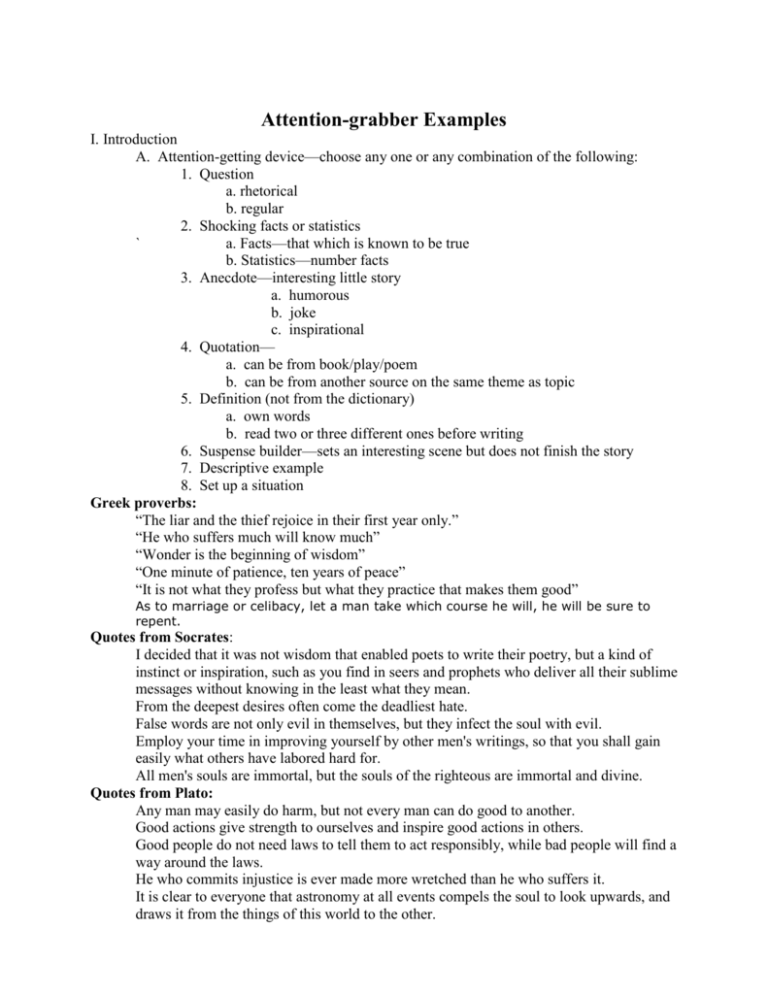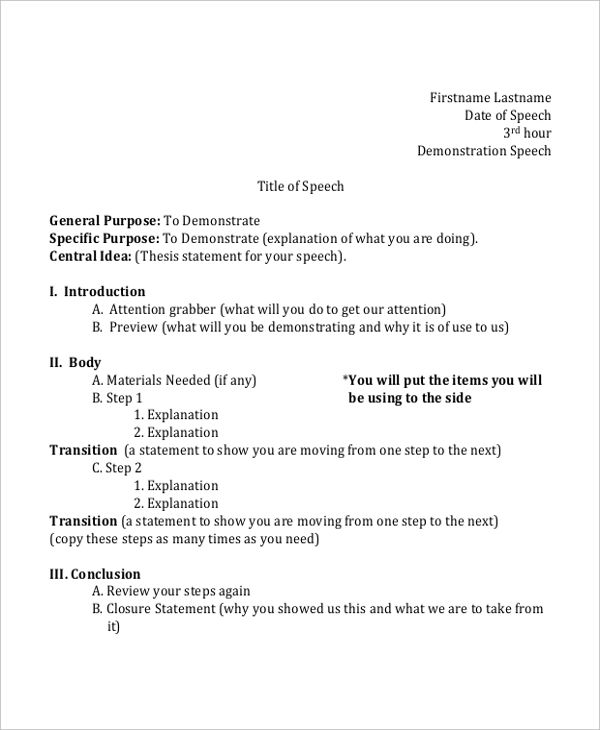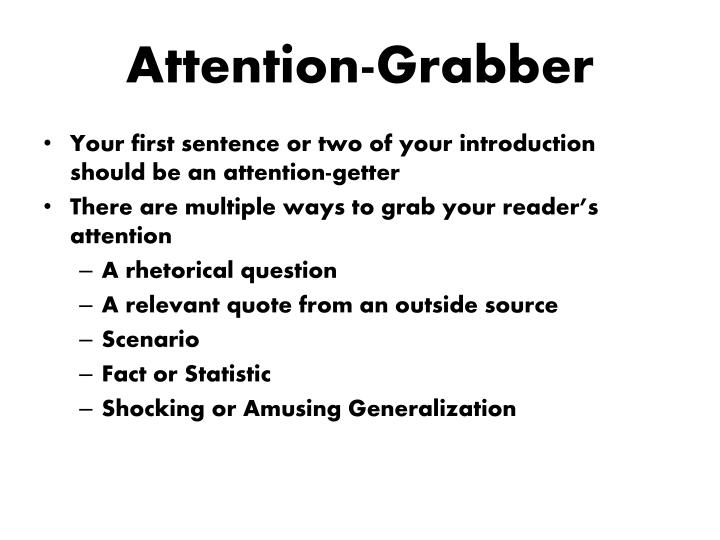

It seemed at the rime to be the perfect solution to a very scary and very real problem.

When the day finally arrived, I stayed home. Me? In front of thirty other fourth graders giving a speech? For the next five days I lived in dreaded anticipation of the forthcoming event. And, then, the boom lowered: 'Attention class-your next assignment is to present an oral report at your paper in front of the class next week.'

I could read and write, and add and subtract-yes, all of the essentials were there. "As I was working my way through the public school system, I, like my peers, believed that I was receiving a fine education. Here is an example of a personal anecdote meant to arouse audience empathy: Reminding his audience of his own American roots helped Churchill to establish a strong common bond on which he drew as he urged the cooperation of Congress in the war effort. So perhaps things are better as they are." In that case, I should not have needed any invitation but, if I had, it is hardly likely that it would have been unanimous. In that case, this would not have been the first time you would have heard my voice. By the way, I cannot help reflecting that if my father had been American and my mother British, instead of the other way around, I might have got here on my own. I wish indeed that my mother, whose memory I cherish across the vale of years, could have been here to see. The fact that my American forebears have for so many generations played their part in the life of the United States, and that here I am, an Englishman, welcomed in your midst, makes this experience one of the most moving and thrilling in my life, which is already long and has not been entirely uneventful. "Members of the Senate and of the House of Representatives of the United States, I feel greatly honored that you should have invited me to enter the United States Senate Chamber and address the representatives of both branches of Congress.

Congress shortly after the bombing of Pearl Harbor in December 1941: Or you may reveal your authority on the subject of your speech.īritish statesman Winston Churchill, whose mother was American, used this personal statement of appreciation to open his address to the U.S. You may express appreciation at having been asked to speak. A reference to yourself can take several forms. This can be accomplished with a hypothetical situation (“imagine that you are walking through the forest”), or with an anecdote (“imagine that you are Sam, a forest ranger in Alaska”).Personal Reference. Hypothetical example-This device asks your audience to envision a scenario as if it were happening to them. For example, if your topic is related to the education system, you may refer to historical examples of the founding of certain schools or universities. A historical example can refer back to a specific time or event for comparison or inspiration. Historical anecdote-This story describes a historical event. For example, if you are speaking to college freshmen about time management, you may share some of your own struggles and successes as a freshman. Personal anecdote-This story describes your personal experience with the topic. An anecdote might be useful to make a connection with the audience, tell a story, or help the audience visualize the main points. Anecdotes are short stories that illustrate the main points of the speech.


 0 kommentar(er)
0 kommentar(er)
